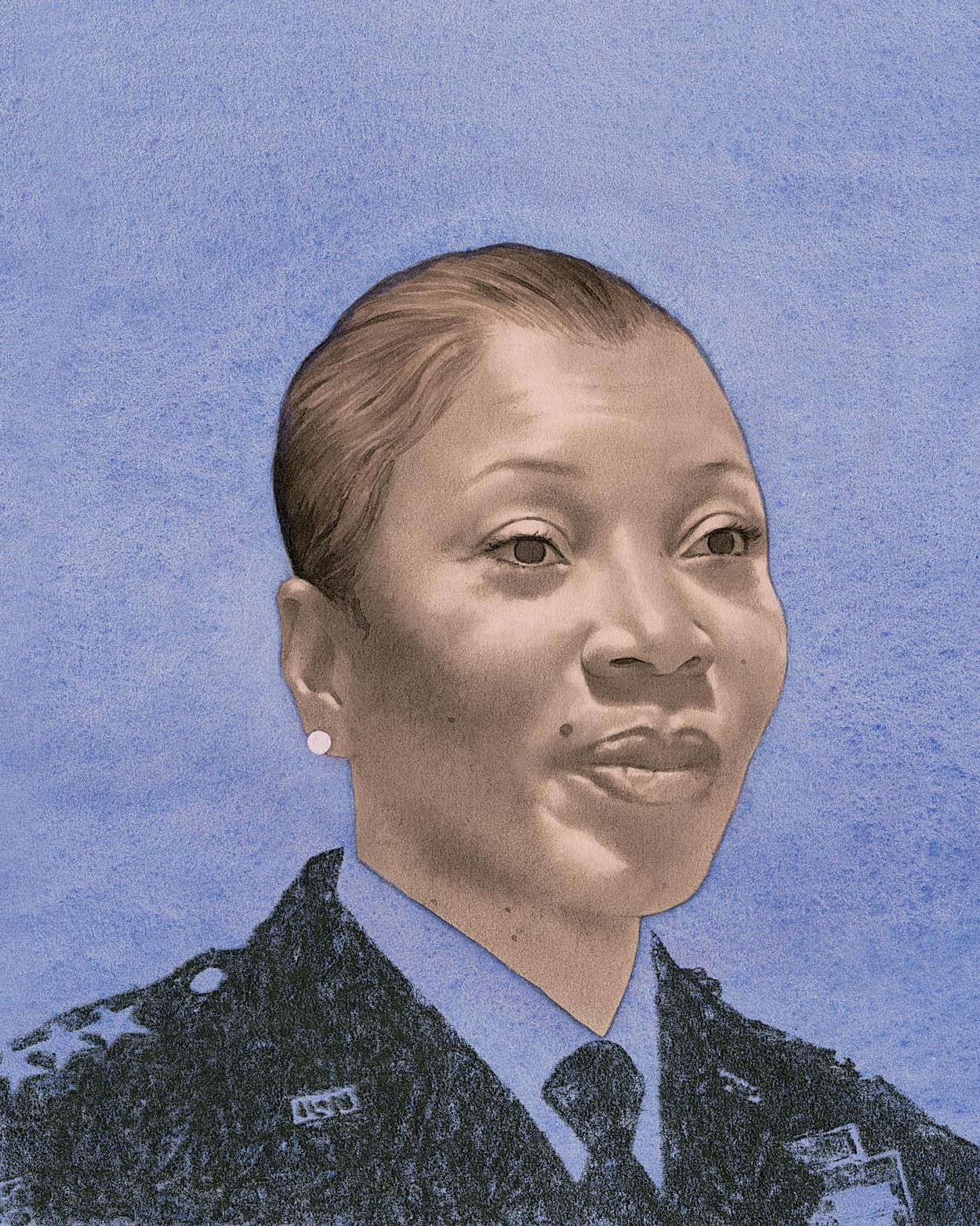In September, U. Reneé Hall became Dallas’s first female police chief, taking over a department suffering from flagging officer morale and attrition due to pension changes, as well as the lingering fallout from the July 7, 2016, ambush that claimed the lives of four Dallas police officers. The 47-year-old Michigan native has an undergraduate degree from Grambling State University and two master’s degrees from the University of Detroit Mercy. She served as a deputy chief of police for the Detroit Police Department from May 2014 to August 2017. She started her new job in September, and her first big move was to streamline the department’s command structure.
Texas Monthly: You know all too well the high stakes of being a police officer—your father, a Detroit cop, was shot and killed when you were an infant. When did you know that you too wanted to go into law enforcement, and how has this loss shaped your career?
U. Reneé Hall: I never wanted to be the police. If you ask anybody who knows me, they’ll tell you, “She wanted to be a lawyer.” My dream was to be a Supreme Court judge. But as my grandmother always said, “If you want to make God laugh, tell him your plans.” When I was in graduate school, I met the Detroit chief of police and he told me, “You need to join the police department.” He saw something in me, and he kept pressuring me to join. So here I sit, almost twenty years later, as a police chief in Dallas.
TM: What lessons from policing in Detroit do you think will be instructive for your job here?
URH: I’ve learned the importance of bringing officers to the table so they have a voice in the process and they’re able to play a role in how we meet various challenges. In Detroit I also learned that community partnerships work. Right now in Detroit, crime is at a record low. And, yes, technology plays a part in that, but it is mainly down thanks to community partnerships. When people are engaged and working alongside the police, positive results happen.
TM: In December you ruffled feathers by demoting two finalists for your job when you slimmed down the department’s command staff. What do you hope to accomplish with the leaner command structure and consolidated control divisions?
URH: Let’s start with the demotions. I didn’t demote anyone. This department had to be leaner. We had nine assistant chiefs and fifteen deputy chiefs. When you look across this country and at best practices, the executive level is not where you need the larger numbers. You need the larger numbers directly serving the public.
We wanted community engagement. We wanted individuals who are very engaged with our officers, because we cannot have a tiered system where we’re up high and looking low.
Now the lines of communication have slimmed down. We’re much more accountable. We’re responding more quickly to complaints and to the city manager and assistant city managers.
TM: It has been a challenging few years for American policing, with the rise of cellphone videos capturing instances of police brutality. How do you grapple with these issues as chief, and how do you address them with your officers?
URH: We have to own what we do wrong. We owe this community, and communities across the country, trust and legitimacy in what we do. We have to talk about the fact that there have been actions by police officers that have challenged the relationship between the police and the community. We have to train differently, and we have to ensure that when we use force, it is the level of force necessary. We can’t police the community unless we can first police ourselves.
I want to make sure that my officers understand that I support them wholeheartedly and unwaveringly when they are doing the right thing. But the second they step out of line and violate policy and procedure and the rights of the citizens, then they will face the same level of scrutiny that anyone else would.

TM: This July 7 will mark two years since the sniper attack in downtown Dallas. What kinds of scars has that left on the police department, and how are you working to heal them?
URH: They are immeasurable scars. It’s not normal to watch the people that you’ve gone through the academy with, that you see every day, that you play basketball with, get killed right in front of your eyes. So we’re making sure that the officers are whole by providing the opportunity for them to seek counseling, not because there’s something wrong with them but because they need to talk about this situation.
TM: You’re the first female police chief in the history of the Dallas Police Department. How have you dealt with the misogyny and sexism that you’ve encountered over the course of your career?
URH: I’ve had some great male mentors who have been very instrumental in molding and shaping me into who I am. But along the way you do meet men who, because you’re a woman, don’t feel like you really deserve to be in this spot or think you’re not qualified. Let’s be really transparent here: law enforcement is predominantly male, and across this country it’s predominantly white male. So we hear “Are women strong enough?” or “Do they have what it takes?”
But I think what has been changing is people see that women bring something different to law enforcement. We police differently and we bring something different to the table.
You deal with misogyny the way you deal with anything else. You come to the workplace every day. You give 100 percent. You do the best job you can. You lead your troops and always do the right thing for the right reason. And the rest of it will take care of itself.
This interview has been edited for clarity and length.








